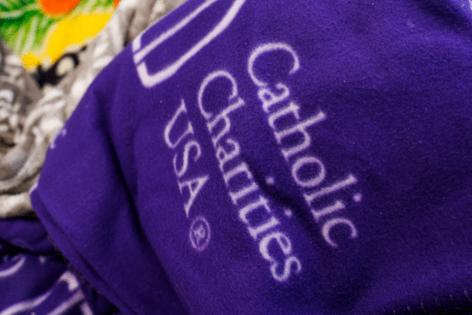Supreme Court may free Catholic Charities from paying state unemployment taxes for their employees
Published in Religious News
WASHINGTON — The Supreme Court voted Friday to hear a potentially far-reaching claim of religious freedom and decide whether church-sponsored charities, programs and businesses may refuse to pay state unemployment taxes for their employees.
All states exempt churches and church programs from the taxes if they "operate primarily for religious purposes." But they usually require affiliated schools, colleges, hospitals and other businesses to pay unemployment taxes if they are open to all and do not offer worship services or religious training.
In a case from Wisconsin, the justices will reconsider that approach and decide whether instead to require the states to defer to religious authorities. The appeal that will be heard argues the government may not "second-guess the religious decisions" of church authorities who seek an exemption.
The dispute began with Black River Industries, Barron County Developmental Services and two other small nonprofit corporations that are funded by state or federal grants to provide services for people with developmental disabilities.
They are now controlled by Catholic Charities that sued to seek an exemption from the unemployment taxes.
Their lawyers argued those charitable programs are motivated by "sincerely held religious beliefs and to carry out the religious mission" of the church.
Therefore, they said, it violates the Constitution to require Catholic Charities to pay unemployment taxes, noting the church has its own program of unemployment coverage.
The Wisconsin Supreme Court disagreed in a 4-3 ruling and upheld the state taxes. It said the four programs were "charitable" and "educational," but not primarily religious.
Lawyers for Becket Fund for Religious Liberty appealed and urged the court to overturn the Wisconsin ruling.
The case comes before a high court that has repeatedly ruled in favor of religious claims over the last decade.
In one line of cases, the justices said churches and religious claimants are entitled to equal state benefits, including grants to pay for playgrounds at a church school or tuition grants for parents to send children to religious schools.
In another line of cases, they ruled religious organizations are freed from government regulation of their employees.
Four years ago, for example, they ruled that two Catholic school teachers in Los Angeles who were fired could not sue alleging they were victims of discrimination.
A year later, the court ruled that as a matter of religious freedom, Catholic Social Services had a right to participate in a city-sponsored foster care program in Philadelphia and receive payments for doing so, even though it refused to work with same-sex couples as required by the city.
The court also ruled that private businesses such as the Hobby Lobby stores and church-sponsored entities had a religious liberty right to refuse to provide contraceptive coverage for their employees as required by federal law.
In the Wisconsin case, a group of religious liberty scholars urged the court to rule the government must "defer" to church authorities in matters involving their organizations.
"This case involves severe governmental interference with religious liberty that strikes at the heart of the 1st Amendment's most basic guarantees," they wrote in a friend-of-the-court brief. They said "courts must defer to how the religious group defines its message."
The Catholic Conference of Illinois was among the church groups that urged the court to hear the case. Its brief noted that its bishops speak for 949 parishes, 46 Catholic hospitals, 21 health care centers, 11 colleges and universities, 424 schools and 527 Catholic cemeteries.
The court is likely to schedule arguments in the Wisconsin case in March or April and issue a ruling by the end of June.
"Wisconsin is trying to make sure no good deed goes unpunished," said Eric Rassbach, vice president and senior counsel at Becket. "Penalizing Catholic Charities for serving Catholics and non-Catholics alike is ridiculous and wrong. We are confident the Supreme Court will reject the Wisconsin Supreme Court's absurd ruling."
__________
©2024 Los Angeles Times. Visit latimes.com. Distributed by Tribune Content Agency, LLC.









Comments